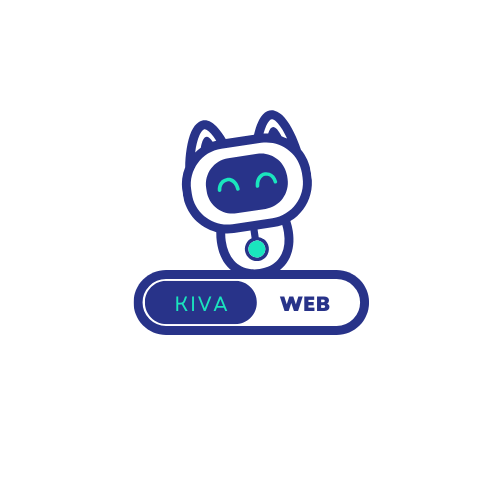In today’s fast-paced digital world, customers expect more than just a good product—they want a seamless experience that feels tailor-made for them. Enter AI-powered customer journeys, the secret sauce that transforms mundane interactions into memorable adventures. Imagine a world where your favorite brand knows you better than your best friend, anticipating your needs before you even realize you have them. Sounds like magic, right? Well, it’s just AI doing its thing.
Table of Contents
ToggleUnderstanding AI-Powered Customer Journeys
AI-powered customer journeys leverage technology to create personalized experiences. These journeys transform how brands interact with customers, ensuring each engagement is memorable and aligned with individual preferences.
Definition and Importance
AI-powered customer journeys refer to the use of artificial intelligence to analyze customer data and optimize interactions. These journeys enhance customer satisfaction by delivering tailored experiences and solutions. Personalization drives engagement, setting brands apart in competitive markets. Businesses benefit from understanding customer needs through predictive analytics, enabling proactive responses. Ultimately, AI-powered customer journeys create lasting relationships, enhancing customer loyalty and brand reputation.
Key Components of AI-Powered Customer Journeys
Several key components make up AI-powered customer journeys. Data analytics informs decision-making based on customer behavior and preferences. Machine learning assists in identifying patterns, improving engagement strategies. Predictive modeling forecasts future behaviors, guiding marketing efforts. Personalization engines ensure content and recommendations match customer interests. Automation streamlines processes, allowing real-time interactions. These components work together, creating a seamless customer experience that retains attention and encourages trust.
Benefits of Implementing AI-Powered Customer Journeys

AI-powered customer journeys offer numerous advantages that enhance brand interactions. These benefits directly contribute to improved customer satisfaction and stronger loyalty.
Enhanced Personalization
Delivering relevant content creates a tailored experience for each customer. AI analyzes individual preferences, allowing brands to provide recommendations that resonate with users. Dynamic content adjusts in real time, enabling businesses to connect more deeply. Customers appreciate communications that align with their interests, fostering a sense of understanding from the brand. The ability to predict needs based on past behavior ensures a more meaningful interaction. Personalization transforms generic outreach into unique experiences, which increases conversion rates significantly.
Improved Customer Engagement
Engaging customers requires more than just attention; it demands interaction that feels authentic. AI enhances this through continuous analysis of customer feedback and behavior. By recognizing patterns, brands can initiate timely responses that nurture relationships. Engaged customers are more likely to participate in surveys, share experiences, or spread positive word-of-mouth about their journey. A personalized window into their preferences encourages active participation. Higher engagement levels correlate with increased brand loyalty, contributing to long-term business growth.
Increased Efficiency
Efficiency in customer interactions streamlines processes and saves resources. Automation handles routine tasks, freeing employees to focus on higher-value activities. AI optimizes responses, ensuring that customers receive prompt answers to inquiries. Brands can allocate resources more effectively, leading to reduced operational costs. Data-driven insights allow for continual improvement in service delivery, enhancing speed without sacrificing quality. Ultimately, efficient systems help maintain a busy environment while ensuring customer satisfaction remains a priority.
Challenges in AI-Powered Customer Journeys
AI integration in customer journeys presents distinct challenges. These hurdles can hinder optimal customer interaction and brand engagement.
Data Privacy Concerns
Data privacy remains a significant challenge. Businesses must navigate stringent regulations like GDPR and CCPA while managing customer data. Balancing personalization and privacy often creates friction. Infringements can lead to trust issues, resulting in lost customers. Brands need transparent data practices to build confidence. Prioritizing security measures protects sensitive information, fostering a safer customer experience.
Integration with Existing Systems
Integrating AI-powered tools with existing systems poses another challenge. Many companies operate with legacy systems that may not support advanced AI capabilities. Additional complexities arise when aligning new AI technologies with established workflows. Compatibility issues can disrupt operations and delay implementation. Assessing system readiness ensures smoother transitions. Prioritizing comprehensive training for staff on new tools also enhances adoption and effectiveness.
Future Trends in AI-Powered Customer Journeys
The landscape of customer engagement continues to evolve with advancements in AI technology, shaping future customer journeys. These trends are essential for brands striving to maintain relevance and strengthen connections with customers.
Advancements in Technology
Innovative technologies are transforming AI-powered customer journeys. Machine learning algorithms enhance predictive analytics, allowing brands to anticipate customer needs with greater accuracy. Natural language processing creates more engaging chatbots, capable of understanding and responding to inquiries in real time. Data integration platforms enable seamless aggregation of customer information from various touchpoints. Consequently, brands can offer more personalized experiences across channels. Enhanced analytics tools provide deeper insights into customer behaviors, allowing for refined strategies and better-targeted marketing campaigns. These advancements ensure customer journeys remain dynamic and responsive to individual preferences.
Evolving Customer Expectations
Shifting expectations increasingly influence customer experiences. Customers now demand immediacy and personalized interactions in every engagement. Brands that fail to adapt risk losing market share to competitors who prioritize tailored communications. Many customers expect brands to understand their preferences and deliver customized content without prompting. The rise of omnichannel experiences highlights the importance of consistency across platforms. Exceptional service is no longer the standard; it’s the expectation. An overwhelming majority of consumers prioritize brands that leverage AI to enhance their experience, thus prompting companies to adopt AI technologies or risk irrelevance.
Conclusion
AI-powered customer journeys represent a significant shift in how brands connect with their audiences. By embracing this technology, businesses can create tailored experiences that not only meet but exceed customer expectations. The ability to analyze data and predict needs fosters deeper engagement and loyalty.
While challenges like data privacy and system integration exist, proactive strategies can mitigate these risks. As brands continue to innovate and adapt, those who prioritize personalized interactions will stand out in a competitive landscape. The future of customer engagement is here, and it’s powered by AI.










